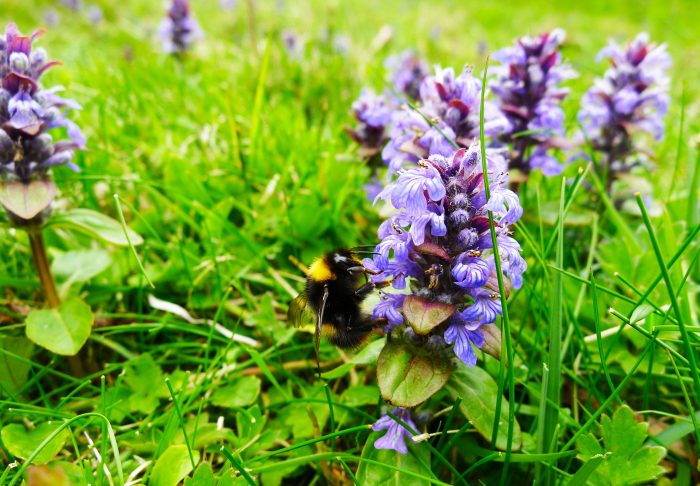Five of the best things you can do for bees
July 14, 2021
60 per cent of bees and other pollinators, such as flies and butterflies, are in decline in the UK according to the latest State of Nature report. The most significant reason for this decline is habitat loss.
YDMT’s Bee Together project aims to connect communities and landscapes to reverse the decline of wild pollinators, but there are also some simple things we can all do to help bees and other pollinators at home.
Catherine Mercer Bee Together project officer gives us five useful tips to help look after bees in your own outdoor space.

Tips to help bees in your own garden
- Let Your Garden Go Wild
Say no to the lawnmower! Leave some of your grass uncut all year round to provide cover for insects. Leave compost heaps, bare earth and cut stems undisturbed to create nesting sites for solitary bees and other insects such as ladybirds. - Grow Pollinator Friendly Plants
The best gardens include a mixture of plants for different bee species. Most plants that are great for pollinators are clearly labelled as such in the garden centre. Try including early and late flowering plants such as lavender, ivy or mahonia to support pollinators throughout the year. Read our Bee-friendly Gardening Guide for more tips. - Go Organic
Organic farms, or those that use pesticides sparingly, have been shown to support more insects than industrial scale, intensive agriculture. Even better, try growing your own organic fruit and vegetables at home. - Sow A ‘Mini-Meadow’
Create a wildflower meadow in your own garden. Read our guide or watch our videos to find out how to Grow your own mini-meadow. You can also buy a Wildflower Meadow Starter Kit from our shop, which includes wildflower seeds and information about creating a wildflower meadow. - Write To Your MP
Get your voice heard and let your local MP know that pollinators are worth protecting.
Insects are the cornerstone of environmental networks. Even the humble midge has an important role in ecosystem function.
Pollinators play a vital part in plant reproduction, food webs and food production. It’s estimated that one third of our food needs pollinators in order to grow.
There are many individuals and organisations working together to take action for bees and other insects. Along with the small individual actions we can all take, we can help to reverse insect population declines.
We’d love to hear from you about how you’re helping out our bees and insects! Get in touch at info@ydmt.org






